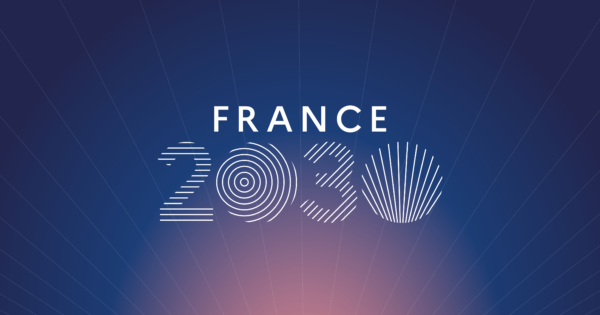
Appel à projets France 2030 « Alternatives vertes 2 »
Doté de 25 millions d’euros, ce dispositif vise à accélérer la transition écologique des entreprises culturelles, afin d’en faire un…

Digital Earth is a 6 monthlong fellowship for artists and designers based in Africa or Asia, working across a variety of media, who would like to investigate our current technological reality. It is a unique research support programme, which supports experienced artists to reflect, research, experiment and produce work. The fellowship consists of a monthly stipend for work and production costs, mentorship and other various resources. The final results will be exhibited in a roaming exhibition.
Digital Earth calls upon divergent artists and designers to embark on a journey to examine, challenge and respond to the material and immaterial condition of the current technological reality. For the duration of the programme the fellowship provides a subsistence allowance and production budget to forward-looking practitioners interested in independently creating work within a specific place, context or institution. The fellowship is aimed at artists and designers at a stage in their career wishing to take 6 months for reflection and research. The geographical focus of the fellowship is on the entanglement of old and new routes that connect Asia to Africa, crossing the Middle East and Central Asia. For centuries, these land and maritime trajectories shaped regional and intercontinental balances of power and culture. Today, similar routes are crossed by goods, people and data at speeds faster than ever, through a circuit of ports, mines, airports, refineries, high speed railways, fibre optic cables and mobile antennas. Perhaps here more than anywhere else, digital and material trails can be followed through different sovereignties, cultures, latitudes… and are hopefully unravelled.
Examples of possible research topics are: the infrastructure of Mongolian crypto-mining, the performativity of the robot-ports on the Siberian coastline, the soundscapes of the coltan mines in the heartlands of Congo, the cultural protocols of freeport zones, the aesthetics of satellite imagery, the agency of machinic vision, the political imaginations of geoengineering projects – and more.
The Digital Earth Fellowship provides:
1. A stipend to enable research, experimentation and to produce work in a specific geographic location in Africa or Asia, for 6 months. The exact amount of the stipend will be based on the cost of living of the country where the research will take place.
2. Access to a research and production infrastructure consisting of a network of researchers, (online) theory and practice courses, research institutes, exhibition venues, creative hubs, art biennales, residencies and companies.
3. A mentor, who will support you in your research. The Digital Earth mentors are internationallyrenowned artists, designers and researchers.
4. The chance to discuss your practice with other fellows during sessions on Google Hangouts;
5. Final works and research findings will be exhibited in 2019 or 2020 in a roaming exhibition.
Research Outline
Planet Earth is wrapped in a gigantic mesh of fiber-optic cables and electromagnetic waves. Its surface is drilled for resources to generate the energy for the data centers that are mining its digital skin for cryptocurrencies. The pervasiveness of technology and the entanglement of wires, devices, minerals and algorithms are creating accidental structures, which exist above and below ground, saturating the whole planet – both physically and cybernetically.
‘Digital Earth’ refers to the materiality and immateriality of the digital reality we live in – from data centers to software interfaces, and rare minerals to financial derivatives. Earth is dug, excavated, and ripped apart to extract the fundamental materials that keep the computational machine running – oil, coltan, sand, rubber, lithium form the material basis on which digital reality is built. At the same time, digital technologies enable new modes of circulation and extraction, of information and data. Algorithmic regimes regulate the movement of goods and people around the world in relatively smooth fluxes enabled by increasingly sophisticated surveillance systems. These algorithmic regimes generate, track and accumulate such a mass of data that is already referred to as the ‘digital twin’ of Earth. The existence of a physical planet and its ‘datafied’ counterpart generate a discrepancy between the reality on the ground and what is recorded and broadcasted – often leading to violent socio-political, economic, ecological and cultural frictions.
Eligibility
Projects should be based in one of the following countries in Asia or Africa: Afghanistan, Algeria, Armenia, Angola, Azerbaijan, Bahrain, Bangladesh, Bhutan, Benin, Brunei, Botswana, Burkina Faso, Burundi, Cabo Verde, Cambodia, Cameroon, Central African Republic (CAR), China, Chad, Comoros, Democratic Republic of the Congo, Republic of the Congo, Cote d’Ivoire, Cyprus, Djibouti, Egypt, Equatorial Guinea, Eritrea, Eswatini (formerly Swaziland), Ethiopia, Gabon, Gambia, Georgia, Ghana, Guinea, Guinea-Bissau, India, Indonesia, Iran, Iraq, Israel, Japan, Jordan, Kazakhstan, Kenya, Kuwait, Kyrgyzstan, Laos, Lebanon, Lesotho, Liberia, Libya, Madagascar, Malawi, Mali, Malaysia, Maldives, Mauritania, Mauritius, Mongolia, Morocco, Mozambique, Myanmar, Namibia, Nepal, Niger, Nigeria, Oman, Pakistan, Palestine, Philippines, Qatar, Rwanda, Russia, Sao Tome and Principe, Saudi Arabia, Senegal, Seychelles, Sierra Leone, Singapore, South Korea, Somalia, South Africa, South Sudan, Sri Lanka, Sudan, Syria, Tanzania, Taiwan, Tajikistan, Thailand, Timor-Leste, Togo, Turkey, Turkmenistan, Tunisia, Uganda, United Arab Emirates, Uzbekistan, Vietnam, Yemen, Zambia, Zimbabwe.
Selection
Your application will be assessed by a selection committee on the basis of your research proposal; this includes the quality of your work, your visual and reflective skills. Also, the committee will look into the relevance of your proposal to the research outline of Digital Earth. A balance will be sought between applicants from different geographic locations.
How to apply
Please make sure to read all the requirements and conditions described on our website: www.thedigitalearth.org before submitting an application.
Apply digitally, by emailing an application (no later than 19 August 2018 (23.59, CEST)) to: info@thedigitalearth.org.
Practical Info
Duration: September 2018 until February 2019
Number of participants: 15
Open Call Join the Digital earth Fellowship
Open until August, 19
More information on : www.hivos.org
Doté de 25 millions d’euros, ce dispositif vise à accélérer la transition écologique des entreprises culturelles, afin d’en faire un…
Une occasion unique pour les esprits critiques de s'engager dans des projets transformateurs, répondant aux défis urgents posés par le…
Cet appel s’adresse à l’ensemble des artistes, chercheur·euse·s, professionnel·le·s, individuels ou collectifs évoluant dans tous les champs de la création…

